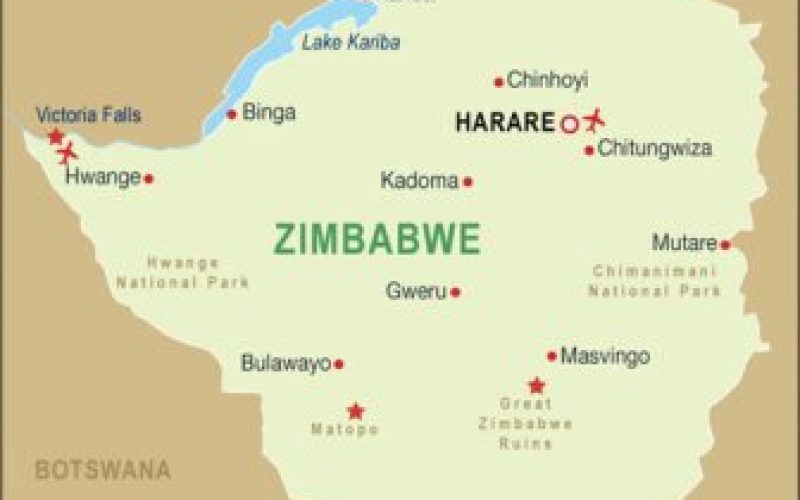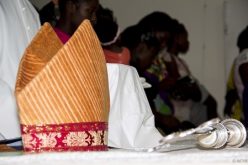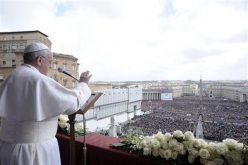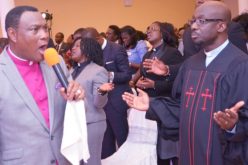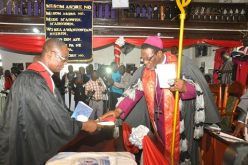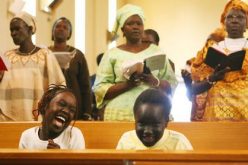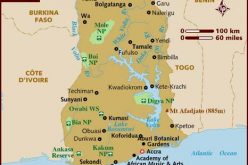Anglican Communion News Service, London – The Anglican Church in the Zambia has challenged the country to take conscious steps to preserve the peace, which the country has enjoyed since attaining independence from colonial rule on October 24, 1964.
This was contained in a special Independence Day message made available to ACNS and other media today by the Church of the Province of Central Africa (CPCA) Acting Provincial Secretary, and Bishop of Eastern Zambia, the Rt Revd William Mchombo.
The message addressed various areas which the country needs to focus on in order to engender lasting peace in the Central African nation, including poverty, corruption, tribalism, regionalism and youth unemployment.
Don’t take peace for granted
“Our country has been blessed with peace which is not the case with many of our neighbouring countries,” said Bishop Mchombo. “We may be truly at peace with our neighbours, yet because of impoverishment that we witness in most rural areas, fail to experience fulfillment and enjoyment which are the ingredients of the true meaning of peace.”
He added: “Poverty degrades human dignity and the proportional distribution of the national wealth will engender peace. However, we need to continuously thank God for the prevailing peace in the nation and look into the future with hope.”
Zambia today celebrates its 49th Independence Anniversary and the Church sees this as an opportune time for serious introspection and prayerful reflection. “In our reflections as a nation we need to look back in the past with great thanks for the work of the selfless freedom fighters and of many of our people, including the youth of the time for our independence,” said the Bishop.
Selfless and sacrificial service
The Bishop reminded the country about the selfless nature of the freedom fighters who were drawn from different ethnic, regions, races, religions and professional affiliations and yet fought for a common cause.
“These women and men who sacrificed their freedom to liberate this nation came from all over the country,” said Bp Mchombo. “They were driven by one desire of attaining independence by conquering colonialism and servitude. They led the way for selfless and sacrificial service.”
The Bishop was disappointed however that, despite having attained 49 years of Independence, “We are far from attaining socio-economic independence from under development, poverty, corruption, disease, unemployment, regionalism with its twin brothers of tribalism and nepotism.”
Poverty a threat to peace
“Poverty also allows for manipulation of the have-nots by those who are relatively wealthy especially at election time,” said the Bishop. “This calls for an aggressive and sustainable approach towards agriculture which is the main occupation of the majority of our people in rural areas.”
The Bishop highlighted the role that agriculture especially small-scale farmers play in food security and national peace. “Besides improving their economy at household level, small scale farmers also contribute to the national food security thereby contributing greatly to the peace of the nation. Small scale farmers need to be supported if we are to get out of the vicious cycle of poverty.”
Challenges to development
The Bishop said that corruption should be “nipped in the bud whenever and wherever it shows its ugly head” and that those in public offices should provide the necessary leadership in the crusade.
He added: “The country needs healthy and energetic young men and women to tow the path of national development. Therefore concerted efforts in the promotion of maternal health should also be encouraged while addressing HIV and AIDS in order to have an HIV and AIDS free generation.”
While acknowledging that the government alone cannot be the sole provider of employment in the country, the Bishop challenged the government to provide a “conducive atmosphere for small scale businesses to flourish with the provision of right incentives such as easy access to a revolving fund with low interest rates and less red tape.”
“Youth unemployment remains a challenge,” he pointed out. “We see a good number of our youths with different skills wanting to contribute to the economic development of this nation but they lack capital and space to start their own businesses, commensurate with their skills.”
“If government can provide market shelters for conducive trading to marketeers, it surely can consider putting up workshops for various artisans engaged in works such as metal fabrication, manufacturing, motor mechanics and carpentry.”
Favouritism a danger to national peace
“Giving preferential treatment or favouritism to people from one’s own region despite their lack of the requisite qualifications for a particular assignment or job goes against the spirit of impartiality and the promotion of meritorious appointments,” pointed out the Bishop. “It brings up despondency and can undermine the peace of the country.”
He added: “Left unchecked, regionalism, with its twin brothers of tribalism and nepotism, can plunge the nation into chaos. The national anthem stresses the oneness of the people of Zambia, a land of work and joy in unity, one land and one nation being our cry (prayer), dignity and peace beneath Zambia’s sky!”
“Unfortunately, in the recent past, both public and private media have been overwhelmed with the issue of tribalism pitting politicians in high offices. Politicians who are in the habit of playing a tribal trump card to push personal agendas should be shunned and probably named and shamed.”
Bishop Mchombo said that tribalism is an affront to good human relationships and peaceful coexistence. “As we celebrate this 49th Independence anniversary let us walk into the jubilee year and beyond with hope and unity of purpose for the sake of a better mother Zambia.

